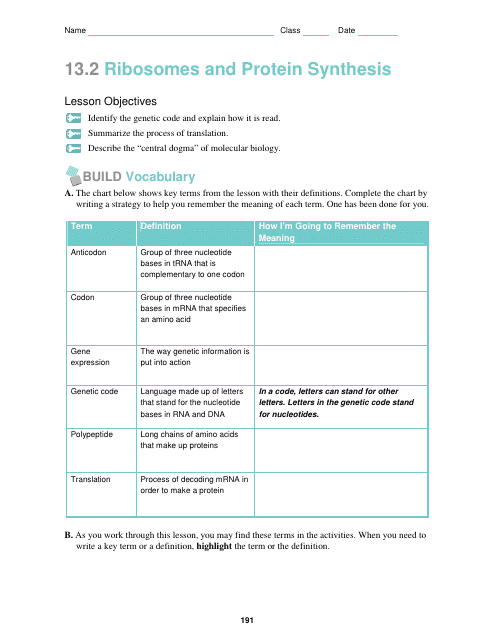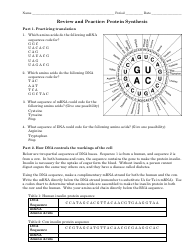Ribosomes and Protein Synthesis Worksheet - 12-th Grade, Toms River High East School
The Ribosomes and Protein Synthesis Worksheet is a learning material designed for 12th grade students at Toms River High East School. It is used to teach and assess their knowledge and understanding of ribosomes and the process of protein synthesis.
FAQ
Q: What is the function of ribosomes?
A: Ribosomes are responsible for protein synthesis in the cell.
Q: What is protein synthesis?
A: Protein synthesis is the process by which cells build proteins using instructions from the DNA.
Q: What are the steps involved in protein synthesis?
A: Protein synthesis involves transcription, where DNA is copied into mRNA, and translation, where mRNA is used to build a protein.
Q: How do ribosomes participate in protein synthesis?
A: Ribosomes read the mRNA and link together amino acids to form a protein chain.
Q: What happens to proteins after they are synthesized?
A: Proteins undergo further processing and folding before being transported to their final destination in the cell.
Q: What are some examples of proteins in the cell?
A: Some examples of proteins in the cell include enzymes, structural proteins, and hormones.
Q: What can affect protein synthesis?
A: Factors such as gene mutations, environmental conditions, and cellular signaling can affect protein synthesis.
Q: Why is protein synthesis important?
A: Protein synthesis is essential for cell growth, repair, and functioning of various biological processes.
Q: Do all cells have ribosomes?
A: Yes, all cells have ribosomes, as they are crucial for protein synthesis.









